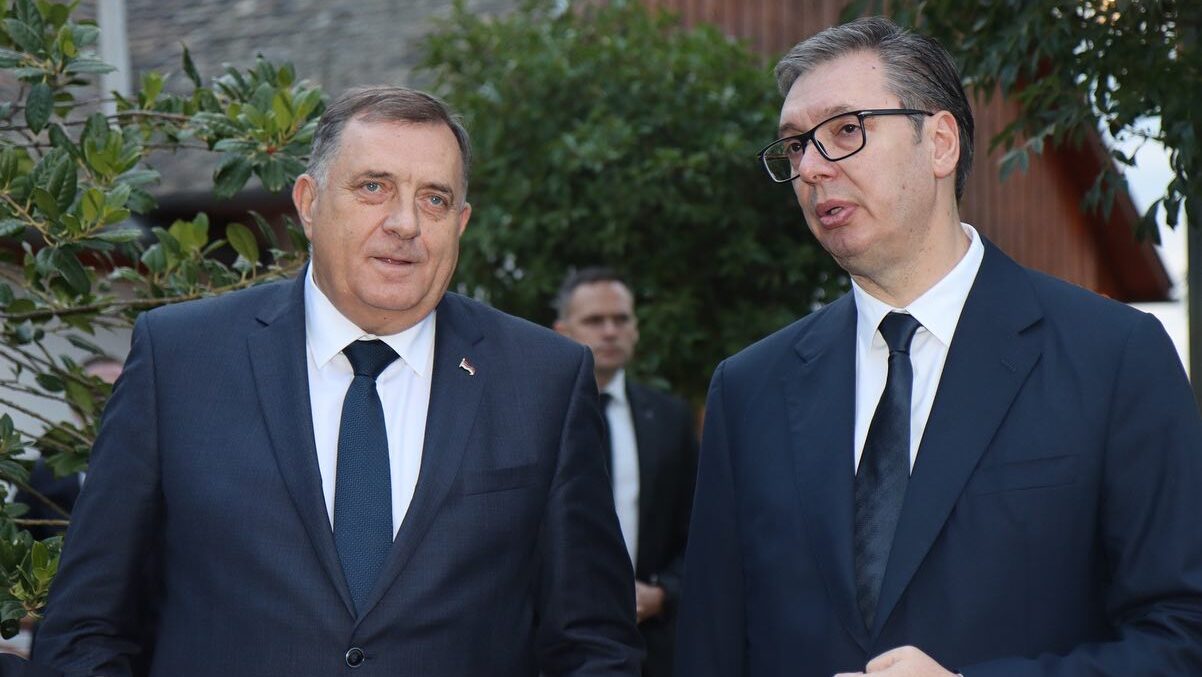Serbian President Aleksandar Vučić surprised his nation on Tuesday evening issuing a cryptic warning of an impending but undefined major threat supposedly manifesting in the next few days. The president posted about this coming challenge on his Facebook page on Tuesday night, March 26th, and hasn’t followed up on it since.
“Difficult days are ahead of Serbia,” Vučić wrote. “At this moment, it is not easy to say what kind of news we have received in the last 48 hours, [but] they directly threaten our vital national interests, both of Serbia and [Republika] Srpska.”
Republika Srpska (RS) is one of the two autonomous entities comprising the neighboring country of Bosnia and Herzegovina (BiH) and 83% of its population are ethnic Serbs. The other entity is the Bosnian and Croat-dominated “Federation of Bosnia and Herzegovina.” Republika Srpska is often considered by many as a puppet state of Serbia, due to the two countries’ close friendship and cooperation.
President Vučić’s post continued:
In the coming days, I will introduce the people of Serbia to all the challenges that lie ahead. It will be difficult, the most difficult so far. We will fight. Serbia will win.
Serbian President Aleksandar Vučić has released cryptic message on social media about a recently discovered threat to Serbia’s national interests.
— Visegrád 24 (@visegrad24) March 27, 2024
"Difficult days are ahead for Serbia. It will be difficult, the most difficult so far. We will fight”
More info to comepic.twitter.com/Yp4aV8Vzy6
There can be only speculation about the meaning of these words at this point, as it’s not even clear whether Vučić was referring to a geopolitical threat concerning the entire country—such as some kind of escalation in the Kosovo conflict, potentially caused by the country’s accession process into the Council of Europe—or simply a political one for only his party and voter base, like a legal challenge to the legitimacy of his recent electoral victory.
Either way, the biggest mystery is why it would also hold implications for Republika Srpska—unless it has something to do directly with the Bosnian state or with Belgrade-Sarajevo relations.
According to Bosnia’s Radio Sarajevo, the president may have been referring to the decision of Bosnia’s UN High Representative, Christian Schmidt, to amend the electoral legislation of the country.
The Office of the High Representative (OHR), established by the Dayton Treaty in 1995, has long been a cause for discontent between Bosnia’s political entities and ethnic groups. The OHR is undemocratically appointed to oversee the country’s three co-presidents and has the power to veto or amend any legislation—often accused by the Serbs of favoring the Bosnian-Croat side of political debates.
For this, Republika Srpska has repeatedly refused to recognize the OHR’s authority. Now a similar dispute may plunge the country into its biggest political crisis yet, as the High Representative is preparing to unilaterally amend BiH’s electoral law by the end of the year.
In response, President Milorad Dodik of Republika Srpska—a close political ally to President Vučić—stated on Tuesday that RS won’t recognize the new legislation and instead will adopt its own electoral law. Observers immediately warned that holding elections under two separate legislations would effectively mean a political, legal, and administrative break-up in the country, potentially leading to a fresh outbreak of ethnic violence.
To be fair, the Dayton Treaty—creating the two entities, governed by a presidium of three co-presidents for each ethnic group overseen by an all-powerful, undemocratically appointed bureaucrat—was never truly seen as a definitive end to the war in the early ‘90s, but just an instrument that would pause the hostilities temporarily.
That pause may be coming to an end now, and that’s what President Vučić might be preparing his nation for. But for now, all this remains just speculation.






